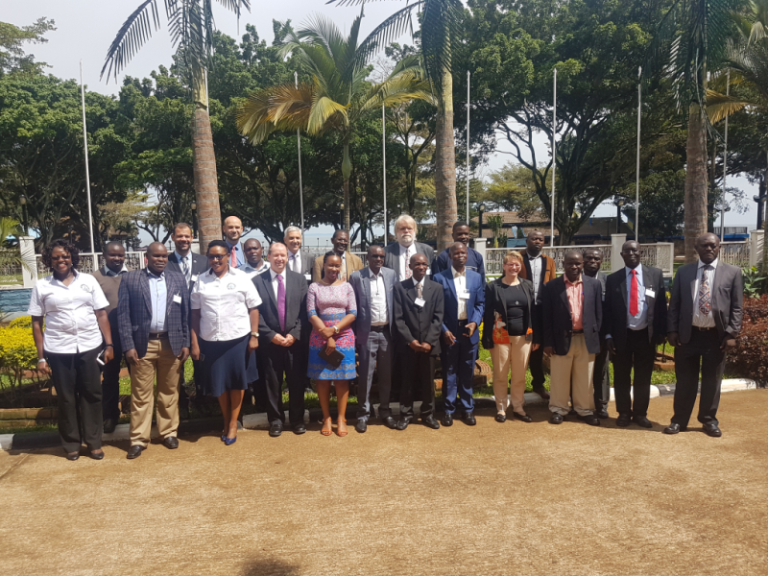Regional Workshop for the East Africa

Regional Workshop for the East Africa
Entebbe, Uganda, 31 October – 2 November 2018

Joint GCOS – Copernicus – WIGOS – GFCS Workshop in collaboration with UNFCCC
Key Messages from the Workshop:
- Most of the value of sustained, systematic meteorological observations can only be realised at a national level if they are reported and exchanged internationally. International reporting of a basic network of surface and upper air observations leads to improvements in local weather prediction and national seasonal forecasts of temperature and precipitation. Global numerical weather prediction and reanalysis are used to provide the boundary conditions for local models and assessments.
- While most of the five countries in the region (Uganda, Burundi, Kenya, Rwanda and Tanzania) have operating networks and sites and are meeting minimum WMO requirements, many of the stations are not fully reporting as needed by international centres for global numerical weather prediction and reanalysis (hourly for surface stations and every 12 hours for upper air observations. Currently, in Africa, only about 10% of the surface and 20% of the radiosonde station that are required to report meet this need.
- The accuracy of climate services depends on the quality and quantity of the observations. Observations underpin all climate services, planning climate policy and adaptation.
- Currently, WMO mandatory requirements are not sufficient to support global NWP and consequently national climate services. However, the proposed WMO Global Basic Observation Network (GBON) will allow numerical weather prediction and reanalysis centres to meet the regional needs.
- The workshop recognised the support of governments in the region for observations, but further and sustained support is needed for the required long-term sustainability of observation.
- The workshop developed an outline for a regional plan to improve the value chain from observations to climate services in East Africa covering:
- Planning to ensure the sustainability of systems and staff: recognising the value of life cycle management of equipment and in-house staff training and mentoring;
- Calibration and maintenance policies,
- Meeting the observational needs of international centres for global numerical weather prediction and reanalysis centres,
- Building on the benefits of the HIGHWAY project around Lake Victoria to enable fully functioning regional network of stations,
- Support regional collaboration to build technical and operational capabilities.
- Training by a representative of the Copernicus Climate Data Store increased the understanding of participants on how its global datasets can be used locally to produce nationally tailored climate services.
- The workshop noted the opportunities to use the global datasets from global numerical weather prediction and reanalysis centres by national meteorological and hydrological services (NHMS) to support national climate services.
- NHMS wish to improve the ways they communicate forecasts, such as the probabilities of extremes events, to the public and decision makers.
- Regional climate service platforms could support communication and science-based decision making on adaptation.
